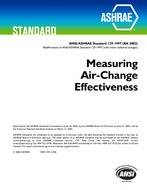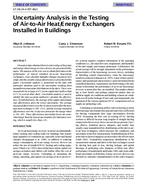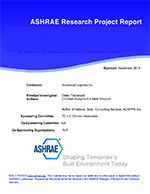Indoor air quality inside chemical laboratories subjected to gaseous contaminants was investigated numerically throughout the current research using Ansys Fluent 13. The lab is 4.8 m (L) * 4.3 m (W) * 2.73 m (H). The model was built and mesh was generated using Gambit 2.2.30 yielding around 1.4 million cells. To ensure the reliability of the Computational Fluid Dynamics (CFD) model validation was done against experimental data of three cases done by Jin et al. [1]. The model could simulate accurately contaminant mole fraction to the order of 10-7 with average absolute error of 9% using Re-normalization group (RNG) k-epsilon turbulence model. Parametric study is done to investigate the effect of wall exhaust and spill locations on the efficiency of the ventilation system. Wall exhaust location had strong impact on the contaminant distribution within the laboratory. Using wall exhaust in same half where the spill occurs was a very efficient solution for contaminant removal in accidents. The spill location did not have strong impact on the indoor air quality inside chemical laboratories. Average absolute deviation percentage in the average contaminant concentration in the studied cases because of the change of the spill location is 5% with maximum deviation percentage of 14%. This was attributed to the good mixing achieved by high Air Changes per Hour (ACH) normally used in laboratories (6 -12).
Citation: ASHRAE Papers CD: 2014 ASHRAE Annual Conference, Seattle, WA
Product Details
- Published:
- 2014
- Number of Pages:
- 8
- File Size:
- 1 file , 1.5 MB
- Product Code(s):
- D-SE-14-C045


